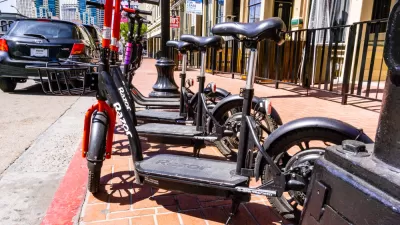Some planning jargon actually clarifies rather than confuses.

Today, I read a fascinating article by Josh Cohen at Next City, titled "What Planning Jargon Do You Wish to See Disappear?". The article describes eight terms as questionable.
For example, Cohen criticizes the common use of the word "livability." He points out that "livability" is an inherently vague term: some people think sprawl is livable, others prefer neighborhoods that are dominated by single-family homes but still more walkable than most suburbs, while others prefer more compact development. In addition, there are substitute terms that are just as effective as "livability" in conveying their meaning: if you think walkable neighborhoods are more livable than sprawl, why not just say you prefer walkable neighborhoods instead?
Admittedly, even "walkability" is somewhat ambiguous—but even so, this term is not as all-encompassing as "livable." For example, a neighborhood with no sidewalks and wide streets dominated by 40 mph traffic might be considered livable by those who revere speedy driving, but it is certainly not walkable.
Cohen also criticizes some terms with a clear meaning that are nevertheless obscure to non-planners. For example, he criticizes the use of the term "cycletrack" as a synonym for "bike lane separated from traffic," because "a cycletrack is likelier to evoke an image of cyclists racing in a velodrome than a bike lane with planters and curbs." I agree; here, a synonymous phrase is less obscure and more widely understood.
But he also criticizes terms merely because they are not widely known. For example, Cohen rejects the use of the term "stroad" to describe streets with fast traffic, because "for most everyone else in the world, roads and streets are synonymous and a portmanteau of them means nothing." In other words, most people don't know what a stroad is. I agree that most Americans don't know what a stroad is—but every non-obscure term was once obscure. The genius of the word "stroad" is that it conveys a one-word mental picture of something that would otherwise require a sentence to describe—a street where cars travel so rapidly as to endanger pedestrians, but which is not a limited-access highway (which means that street lights ensure constant stop-and-go traffic, thus making both pedestrians and drivers unhappy.) I wish every American knew what a stroad was, and I am happy to help lead readers in this direction!
The term "stroad" illustrates why the creation of a new word can sometimes be a good thing: it allows us to take a complex idea and describe it in one vivid word. The best "jargon words" clarify; the worst are so vague that they increase, rather than reduce, reader confusion.

Trump Administration Could Effectively End Housing Voucher Program
Federal officials are eyeing major cuts to the Section 8 program that helps millions of low-income households pay rent.

Planetizen Federal Action Tracker
A weekly monitor of how Trump’s orders and actions are impacting planners and planning in America.

Ken Jennings Launches Transit Web Series
The Jeopardy champ wants you to ride public transit.

California Invests Additional $5M in Electric School Buses
The state wants to electrify all of its school bus fleets by 2035.

Austin Launches $2M Homelessness Prevention Fund
A new grant program from the city’s Homeless Strategy Office will fund rental assistance and supportive services.

Alabama School Forestry Initiative Brings Trees to Schoolyards
Trees can improve physical and mental health for students and commnity members.
Urban Design for Planners 1: Software Tools
This six-course series explores essential urban design concepts using open source software and equips planners with the tools they need to participate fully in the urban design process.
Planning for Universal Design
Learn the tools for implementing Universal Design in planning regulations.
Ada County Highway District
Clanton & Associates, Inc.
Jessamine County Fiscal Court
Institute for Housing and Urban Development Studies (IHS)
City of Grandview
Harvard GSD Executive Education
Toledo-Lucas County Plan Commissions
Salt Lake City
NYU Wagner Graduate School of Public Service






























